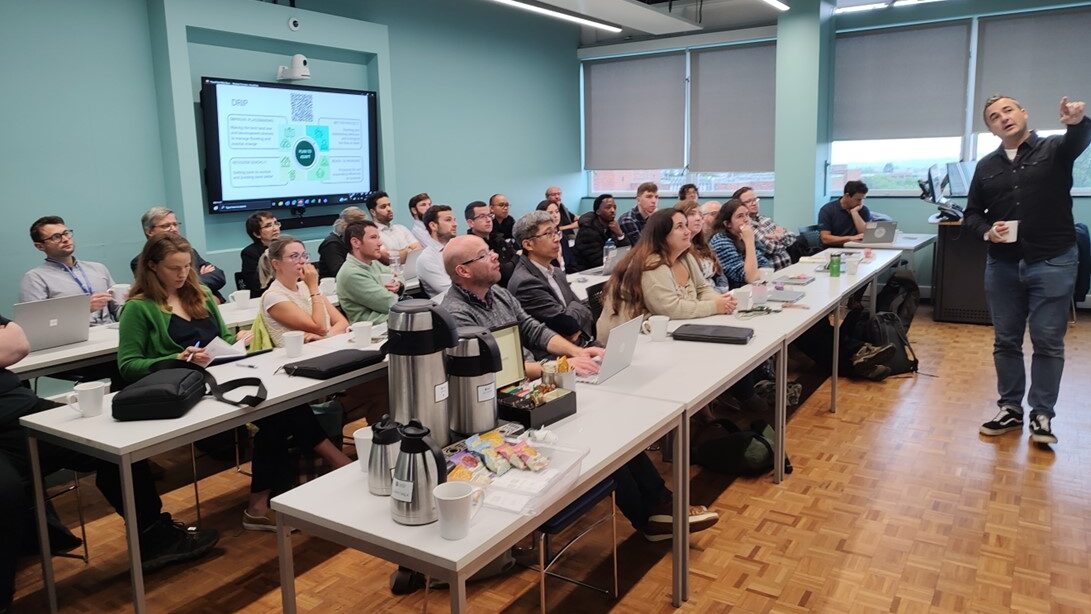The Centre for Water Systems (CWS) at the University of Exeter and the Environment Agency (EA) co-organised a joint research exchange workshop at the Streatham Campus on 25 September 2024. Over 30 participants from both institutions attended, sharing updates on ongoing research activities and needs.
The event began with a tour of the water education and research facilities in the Harrison Building, where experiments in the hydraulic flumes — such as flow dynamics around hydraulic structures, riverbed scouring, debris impact on masonry bridges, and wave energy harvesting — were explained and demonstrated.


Following the lab visit, colleagues from the EA presented a wide range of projects being conducted by various staff members. These projects included strategic overviews, policy development, nature flood management, stakeholder engagement, environmental monitoring, water quality, pollution control, and shoreline management plans.

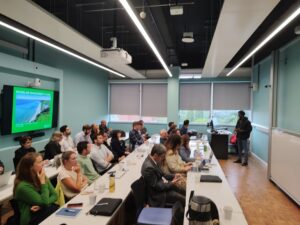
Prof David Butler, Co-Director of CWS, said “The workshop gave us a fascinating insight into the tasks that EA colleagues have been working on, and highlighted the key challenges they are facing where our CWS research could be best of great use.”
CWS is currently involved in several key projects under the Defra-funded Flood and Coastal Resilience Innovation Programme (FCRIP), including Devon Resilience Innovation Project (DRIP), Resilien Together, and Blue Heart. Researchers shared the latest advances in real-time monitoring and modelling, smarter stormwater management, community development, environmental sensing, flood forecasting, and impact assessment within these projects.
The CWS team also highlighted research outcomes from our EU-funded projects such as RECONECT, NATALIE, ICARIA, ARSINOE, WATERVERSE, WATERLINE, IDEATION, ENFORCE, and GeoRes. These projects encompass work on nature-based solutions (NbS), massive open online courses (MOOCs), multi-hazard modelling, cascading failure analysis, data visualization and user interaction, virtual reality (VR) applications, remote sensing, stormwater scenario screening, and groundwater modelling.
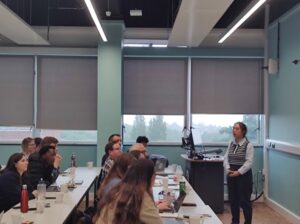
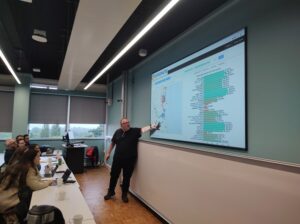
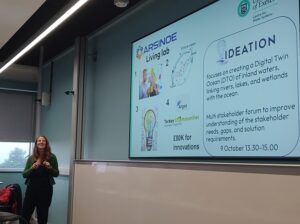
Prof Albert Chen, Drs Kate Baker and Qian Li, and Mr Gareth Lewis shared the modelling approaches, cascading failure engine, visualisation dashboard, and stakeholder engagement of the Living Lab in the Torbay case study of the ongoing ARSINOE project, and discussed the synergies with the EA colleagues.

